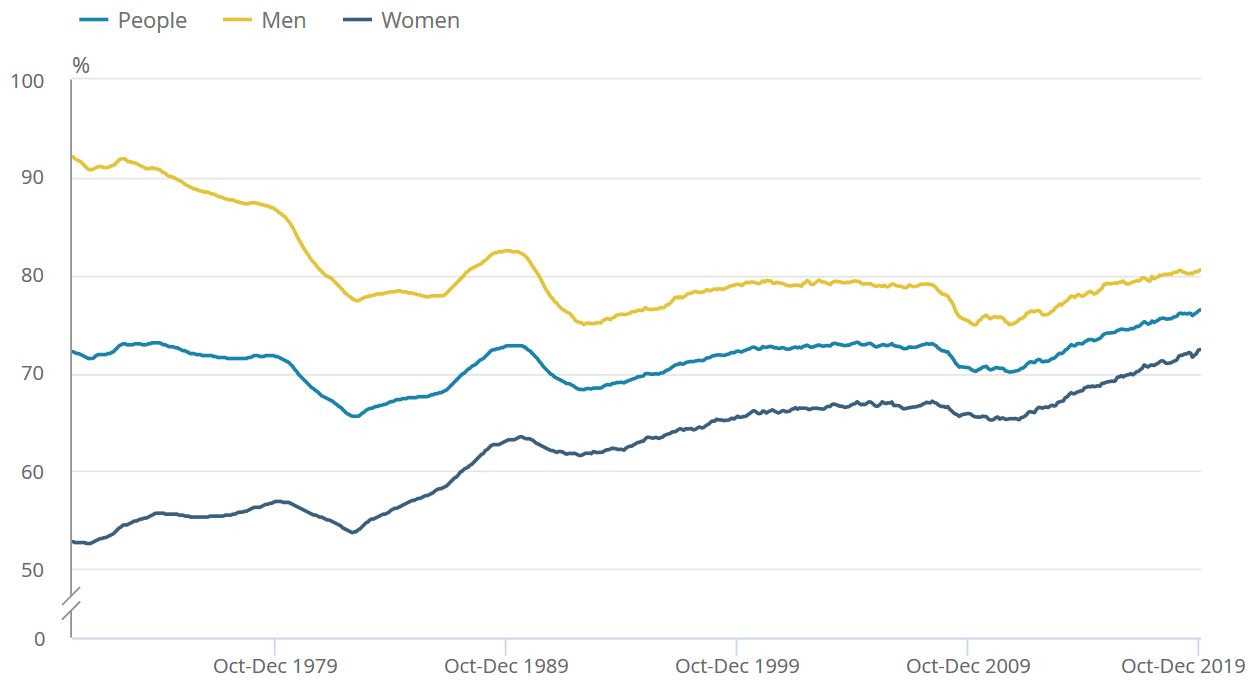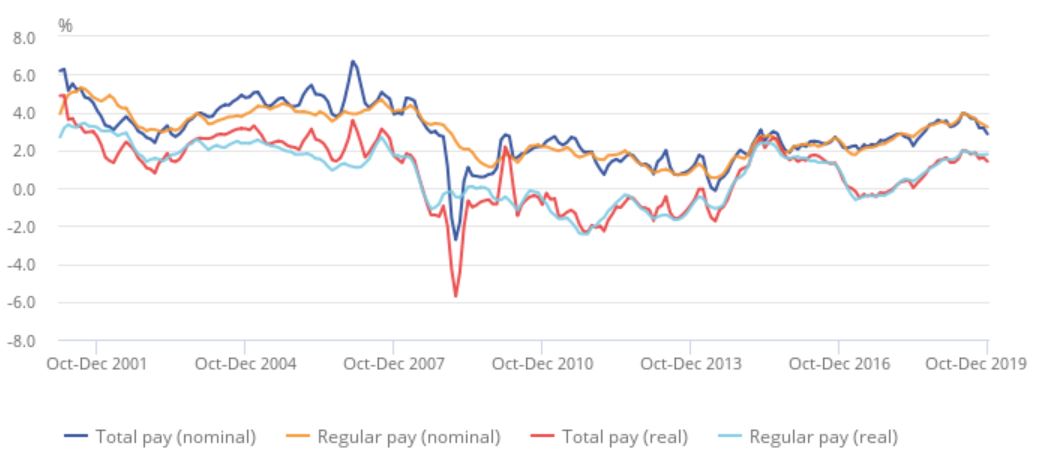ONS Labour Market January 2020
The UK labour market hit another record in the final three months of 2019, with the proportion of 16 to 64 year olds in work reaching an all-time high according to ONS data. However, earnings growth slowed to its slowest rate in over a year.
The employment rate hit a record high of 76.5% in the period, edging up by 0.4% points on the previous quarter and up 0.6% points on last year. This came as the employment rate for women hit a record high of 72.4% (while the employment rate for men edged up to 80.6%), and the number of full-time workers hit a high of 24.42 million. Overall, the number of people in employment rose to 32.93 million people in the three months to December, up by 336,000 on last year.
Meanwhile, the unemployment rate remained broadly unchanged in the quarter at 3.8%, but was down from 4.0% a year earlier. An estimated 1.29 million people were unemployed – 73,000 fewer than last year and 580,000 fewer than five years ago.
The number of people aged from 16 to 64 years old that are economically inactive (not working and not seeking or available to work) reached a record low of 20.5% – down 0.4% points compared to last year and down 0.3% on last quarter. This was mainly driven by record low inactivity among women at 24.8%.
UK employment rates (aged 16 to 64 years), seasonally adjusted, between January to March 1971 and October to December 2019

Source: ONS
Vacancies edge up
Vacancies ticked up in latest quarter following 11 consecutive quarterly falls. There were an estimated 810,000 job vacancies between November 2019 and January 2020 – up by 7,000 on the previous quarter, but 50,000 fewer compared to the previous year. This represents 2.7 job vacancies per 100 employee jobs across the economy.
The retail sector accounted for around 10.6% of all vacancies in the UK in the three months to January.
Earnings slow
Earnings slowed yet again in the quarter to December. Average weekly earnings for employees edged down 0.2% points to 3.4% for regular pay (excluding bonuses) compared to the previous month, while total pay (including bonuses) weakened to 2.9% from 3.2% last month. Total pay came up against a strong comparative with unusually high bonuses given in October 2018.
Given the low inflationary environment, this suggests that regular pay in real terms (adjusted for inflation) is growing at around 1.8%.
Great Britain average weekly earnings annual growth rates, seasonally adjusted, January to March 2001 to October to December 2019

Source: ONS
For December 2019 in nominal terms (that is, not adjusted for price inflation):
- average regular pay (excluding bonuses) for employees in Great Britain was £512 per week before tax and other deductions from pay, up from £496 per week for a year earlier
- average total pay (including bonuses) for employees in Great Britain was £544 per week before tax and other deductions from pay, up from £529 per week for a year earlier
Back to Retail Economic News